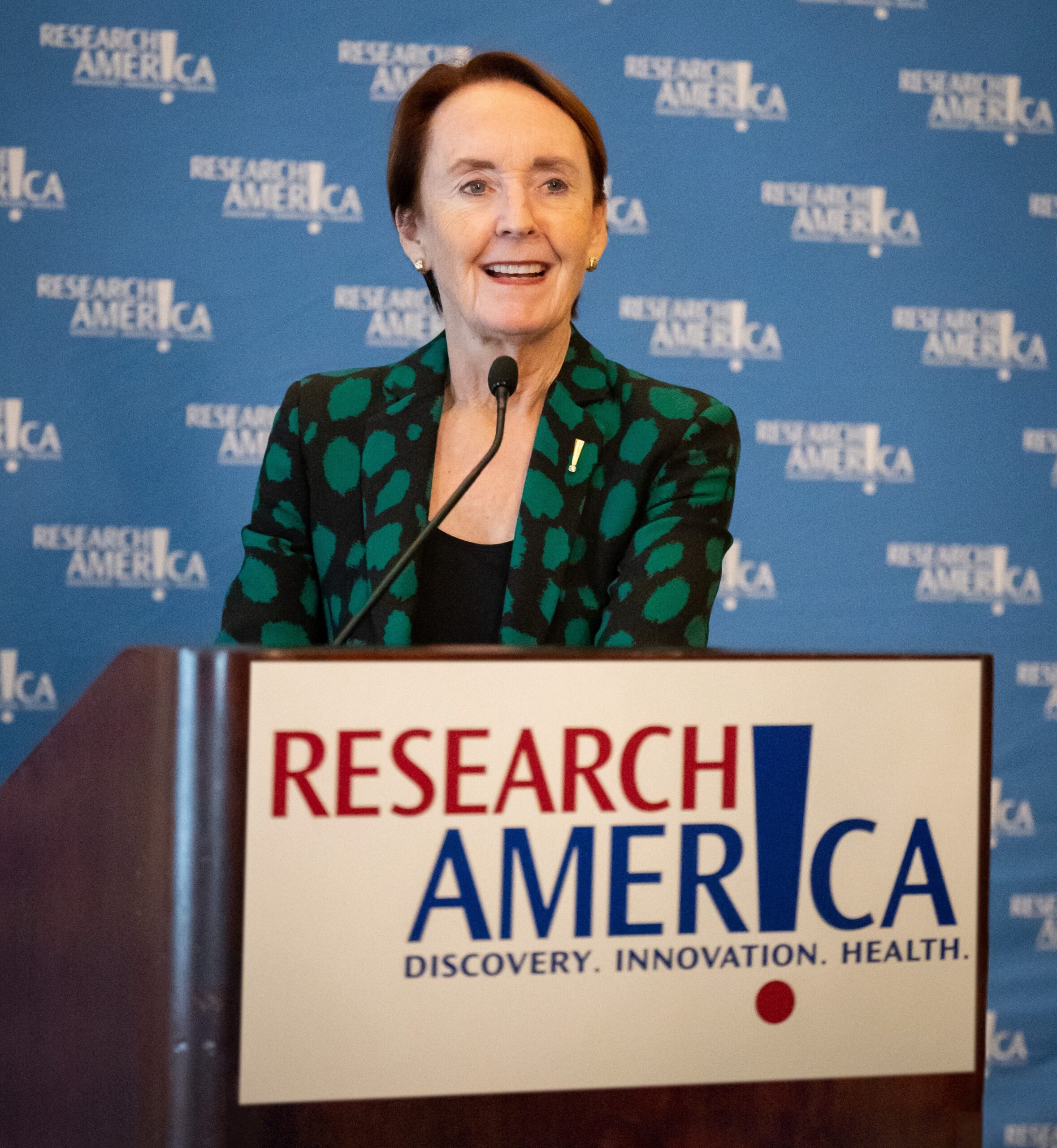Oversight and Progress Too

An article in The Hill published Monday morning, hours before former NIAID Director Dr. Anthony Fauci’s testimony before the House Select Subcommittee on the Coronavirus Pandemic, discussed the possibility that concerns about the Institute’s role in the COVID-19 response and investigation into its origins could lead to efforts to “punish” the agency by de-funding it or in other ways weakening it. Those concerns were aired publicly during Fauci’s 3.5 hours of testimony.
Congress has the right and responsibility to engage in federal agency oversight and to determine funding levels, but the American people want and need the medical progress that comes from the NIH.
As Ellie Dehoney, Research!America’s SVP of Policy and Advocacy, noted in The HiIl article (see link above), congressional champions on both sides of the aisle need to “be vigilant to make sure that any changes proposed for NIH, statutorily or administratively, do not compromise NIH’s role in serving the public good.” She also pointed out that “both Republican and Democratic Administrations, they don’t have any interest at the end of the day in slowing down medical progress.” One thing is certain: vocal support by advocates like you and me, or the lack of it, will influence the path forward.
On the Hill: House Appropriations Subcommittees continue to mark up FY25 appropriations bills to meet their internal August deadline for House passage of all 12 bills. The Committee is scheduled to mark up the Commerce, Justice, Science, and Related Agencies (also known as “CJS”) and Labor, Health and Human Services, Education, and Related Agencies (also known as Labor-HHS) on June 12 and 27, respectively.
As you know, the CJS Subcommittee has jurisdiction over funding for NSF and other science research agencies, while the Labor-HHS Subcommittee funds the NIH, CDC, AHRQ, ARPA-H, BARDA, and other key research and public health agencies. Both bills face significant cuts under the FY25 spending allocations approved by the House Appropriations Committee. Have you taken ~3 minutes to reach out to your representatives in Congress to urge them to reject these cuts and champion research funding? Use our editable action alert now.
Realizing National Aspirations: Last month, in testimony before the House Science Committee, outgoing National Science Board chair Dan Reed linked NSF’s mission to a call to action: “If we want to ensure the fruits of S&T continue to redound to our national security, prosperity, and well-being, we must act, and act now. We need to mobilize all our country’s assets – government (at all levels), industry, academia, and nonprofits – to address our growing challenges and the clear and manifest opportunities for discovery-fueled innovation.” This call to action is central to the work of the Science and Technology Action Committee.
Early Career Summit Sessions: This week, we officially kicked off our 2024 Early Career Research Summit. Yesterday’s career tour session featured presentations from nine STEM career professionals to a large, thoroughly engaged audience. We invite you to join us for the second session of the Summit on Wednesday, June 12, from noon to 1:30 p.m. ET, on Crafting a Winning Resume. Register for this and the following sessions.
Our Research in Action: An article in the Quarterly Journal of Economics on the consequences and causes of low enrollment of Black patients in clinical trials featured data from several of our national surveys. Stay tuned for details on a July 30 briefing we are organizing on Capitol Hill on issues related to clinical trials, including those discussed in the article. Details are still being worked out, but it will be a must-hear conversation if you are in the D.C. area. Registration is now open.
Unleashing AI for Cures: Using an approved drug as a new treatment for another disease has been an effective but underutilized tool in therapeutic discovery. In February 2024, Every Cure received an ARPA-H Project Award to develop an AI-powered platform called ML/AI-enabled Therapeutic Repurposing In eXtended uses (MATRIX) to expand use of this tool. Please join us on Thursday, June 13, at 11 a.m. ET, for an alliance discussion with Co-Founder & President of Every Cure, Dr. David Fajgenbaum, to learn how he repurposed an existing drug to save his own life and now is on a mission to unlock treatments for millions more using the power of AI. Register now.
Research, Pricing, Access? NIH is the world’s largest funder of noncommercial health research. Should it also play a role in product pricing and access? This question is important and timely, as evidenced by recent policy developments, including:
- a National Institute of Standards and Technology-issued draft interagency “march-in” framework that places NIH in the position of monitoring the list prices of drugs and rescinding technology transfer agreements if prices are deemed unreasonable; and
- an NIH Request for Information focused on requiring “product access plans” as a condition for licensing of patents held solely by NIH.
We are holding a brainstorming session for Research!America alliance members on Friday, June 14, at 11 a.m. ET, to think through the implications of these developments for the future of NIH and the research it supports and conducts. If you are a member of a Research!America alliance organization, I encourage you to register for the meeting.
ICYMI: Dr. Megan Frisk, the Director of International Affairs at ARPA-H, was our speaker for this week’s very well-attended (thanks to all who participated!) alliance discussion. Alliance members’ questions shaped the conversation with Dr. Frisk, including the ways in which ARPA-H works with and learns from the international science, technology, and health communities; ARPA-H’s mission in addressing global threats to the U.S.; and distinctions between the roles of NIH and ARPA-H in advancing medical and public health progress. Watch the recording.




